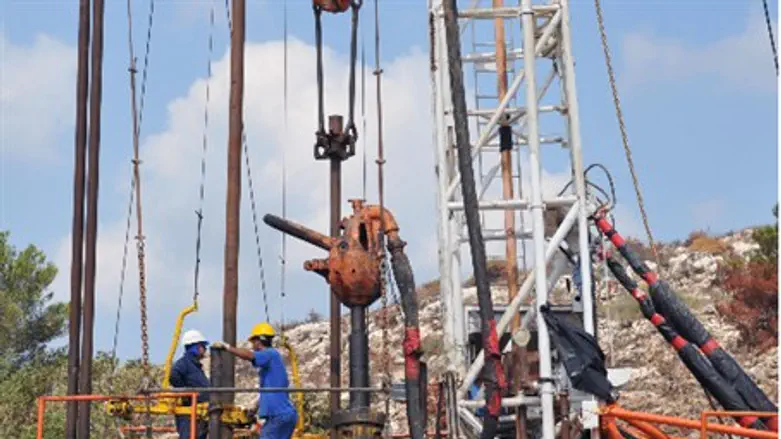
The cash-strapped Palestinian Authority (PA) is looking for oil in Judea and Samaria, but in areas under Israeli control.
According to the PA-based WAFA news agency, Mohammad Mustafa, the Deputy Prime Minister for Economic Affairs, announced on Tuesday that the PA is requesting proposals from interested firms to explore and develop oil in the region.
The license area extends over 432 square kilometers, from north of Qalqilya to the west of Ramallah.
The tender documents were prepared under the supervision of a special Ministerial Committee headed by Mustafa and with the aid of international expert firms such as Exploration Reservoir Consultants Ltd. “ERCL”, which specializes in consultancy for oil exploration, and the international law firm Ashurst, one of the world’s leading firms in oil and gas law, reported WAFA.
Initial studies have indicated that the license area may hold oil reserves ranging between 30 million and 186 million barrels.
The tender is available for public bidding, and will be open to bids for a period ending June 30, after which all the bids will be evaluated by the Ministerial Committee with the aid of a technical committee that will be formed for that purpose, and with the assistance of the international consultants who helped in preparing for the tender.
The project as a whole is expected to generate proceeds exceeding one billion USD to the PA, including cash inflows in the form of taxes, royalties and other bonuses and payments specified in the model contract for the project, according to WAFA.
“The existence of oil in Palestine is a highly promising opportunity for the Palestinian economy,” Mustafa said. He further emphasized the potential for a big shift in the PA’s economy’s trajectory as a result of such a project.
“Having local oil supply will alleviate some of the costs borne by the Palestinian economy on oil imports” Mustafa added.
According to The Associated Press (AP), the project was among a series of initiatives drawn up by Mideast envoy Tony Blair to help develop the PA economy.
The report said that Blair has proposed a multiyear plan for developing the Palestinian economy - an effort that is meant to complement and bolster U.S.-led peace talks with Israel. He has made little headway in carrying out the projects, which focus on eight areas of the economy, including agriculture, construction, tourism and energy.
Progress has been hindered because many of the projects are to take place in Area C - the 60 percent of Judea and Samaria that was left under full Israeli control under the Oslo Accords.
In fact, revealed AP, this oil project as well is to take part in areas under Israeli control.
According to a map released by the PA, the exploration area covers a strip of land along the frontier with Israel, most of which remains under full Israeli control.
In a statement, Blair's office said “the energy sector is indeed one of the eight sectors” including in Blair's initiative.
“Reliable energy supply is critical for the expansion and development of all sectors of the Palestinian economy.” The statement made no reference to the project announced Tuesday and gave no details on where any West Bank oil projects might take place.
Israeli Prime Minister Binyamin Netanyahu's office had no comment, and Israel's energy ministry said it was not involved.
Tuesday’s announcement is not the first time that the PA has declared new projects in Area C.
Only last month, the PA’s Ministry of Transport announced plans for an airport in a region of Judea and Samaria located in Area C.
In 2012, then PA Prime Minister Salam Fayyad inaugurated a water dam to be built in “Palestine” at a cost of over $1 million, ignoring the fact that the project was located in an area under Israeli sovereignty.
The projects come despite the PA’s continued claims that it is suffering from an economic crisis and begging the world to step up financial aid in order to save it from collapsing.
At the same time the PA has continued to provide huge monthly salaries to terrorists serving time in Israeli prisons while blaming Israel for the financial crisis.
On Monday, the PA announced that its total debts had topped a staggering 4.8 billion dollars, and that the current year's budgetary deficit was 1.5 billion dollars.
The PA’s Finance Minister also found the “source” of the PA’s financial problems, claiming once again that Israel was at fault and citing "tax evasion" from Area C.